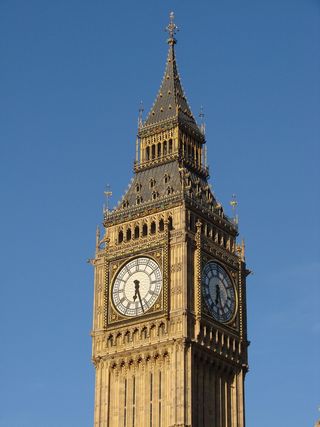Bias
Terror Attacks, Values, and Attitudes
The 7/7 London bombings increased prejudice by changing values.
Posted March 9, 2016
When London won its bid for the 2012 Olympics on July 6, 2005, the national mood was euphoric. Sadly, the nation’s mood changed abruptly after the bombings in London the next day. While the terrible emotional impact was obvious, other impacts of major events like these are harder to discern. In theory, national tragedies may have wide-ranging effects on public attitudes, because the events elicit new anxieties and fears. These concerns, in turn, may influence people’s values -- the abstract ideals that we prioritize (e.g., freedom, equality, helpfulness). For instance, we might find ourselves increasing the importance we attach to the protection of our nation. As we have described in earlier blogs, there is abundant theory and evidence to suggest that such changes in values should have ramifications for attitudes. For example, the shift in values might lead to changes in attitudes toward other groups that we see as threatening our own group.

A recent study provocatively illustrates these potential effects on values and attitudes. In nationally representative surveys within the UK, the research examined attitudes toward Muslims and immigrants both 6 weeks before and 1 month after the London bombings (Van de Vyver, Houston, Abrams, & Vasiljevic, 2016). Attitudes were calculated from participants’ responses to self-report items, such as “Britain would begin to lose its identity if more Muslims came to live in Britain” and “Government spends too much money assisting immigrants (people who come to settle in Britain)”.
The scientists also included two items that assess values: “I feel loyal to Britain despite any faults it may have” and “There should be equality for all groups in Britain.” Loyalty and equality are values that people tend to endorse highly (Bardi, Lee, Hofmann-Towfigh, & Soutar, 2009), but liberals and conservatives differ in how much they tend to consider these to be appropriate bases for attitudes (Day, Fiske, Downing, & Trail, 2014). For this reason, the participants were also asked to indicate the extent to which they identified as being left- or right-wing.
The findings showed the power of national events to affect our values and attitudes. Prejudices against Muslims and immigrants increased after the bombings, at the same time as agreement with ingroup loyalty increased and endorsement of equality decreased. These effects were particularly impactful in left-wing respondents, among whom the changes in values statistically accounted for their increases in prejudice.
Why were left-wing respondents most affected? It is difficult to know the answer from these data. To us, this aspect of the results is less interpretable and interesting than the way in which effects on values translated into changes in attitudes. This study provocatively shows the power of a national tragedy to influence attitudes through values.
References
Bardi, A., Lee, J. A., Hofmann-Towfigh, N., & Soutar, G. (2009). The structure of intra-individual value change. Journal of Personality and Social Psychology, 97, 913–929.
Day, M. V., Fiske, S. T., Downing, E. L., & Trail, T. E. (2014). Shifting liberal and conservative attitudes using Moral Foundations Theory. Personality and Social Psychology Bulletin, 40(12), 1559–1573. http://doi.org/10.1177/0146167214551152
Van de Vyver, J., Houston, D. M., Abrams, D., & Vasiljevic, M. (2016). Boosting belligerence: How the July 7, 2005, London bombings affected liberals' moral foundations and prejudice. Psychological Science, 27(2), 169–177. http://doi.org/10.1177/0956797615615584


